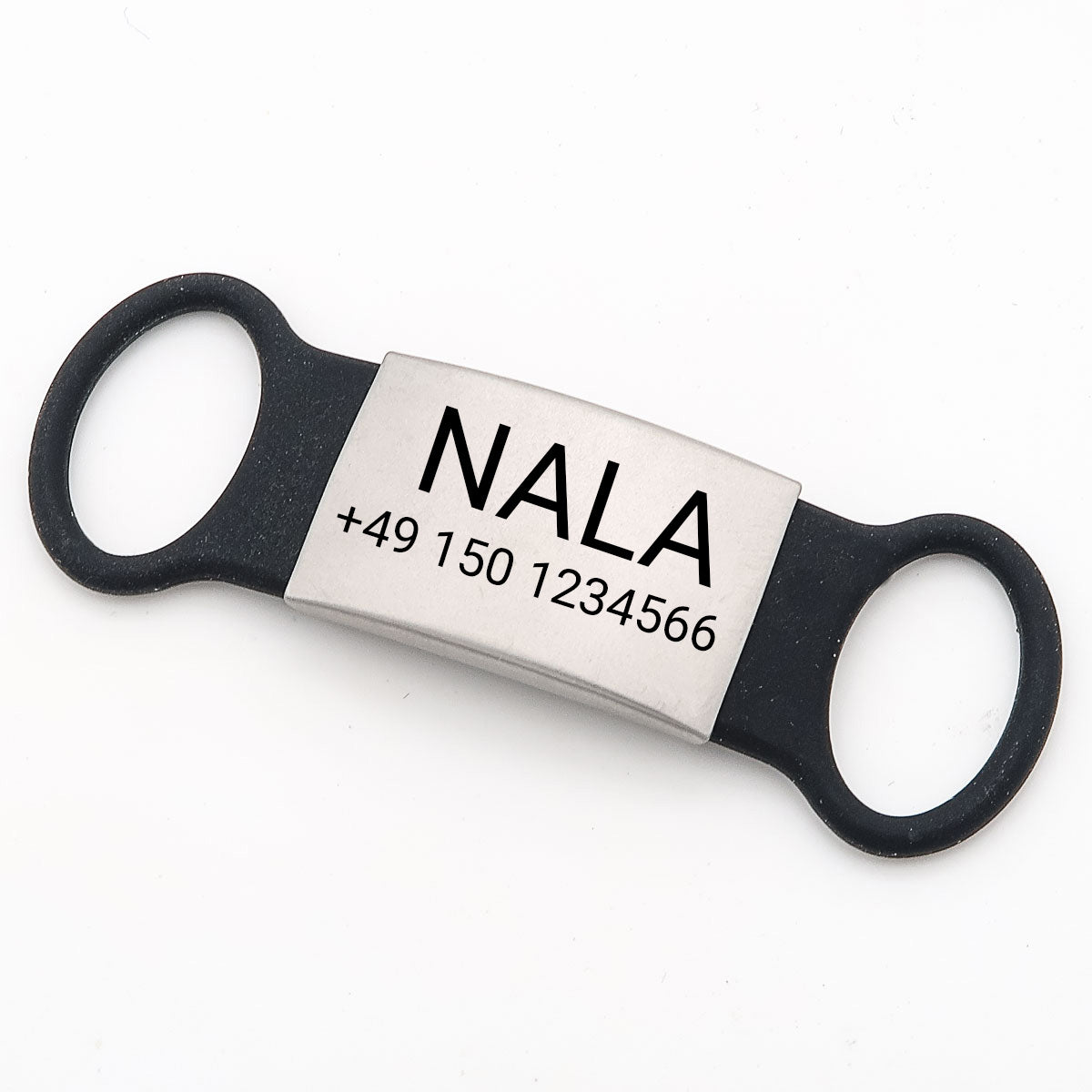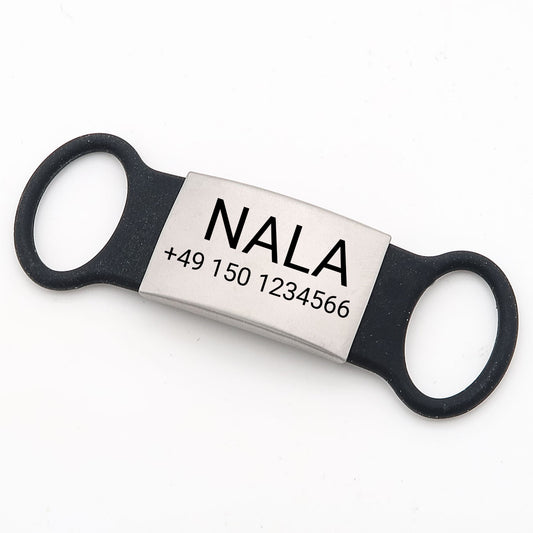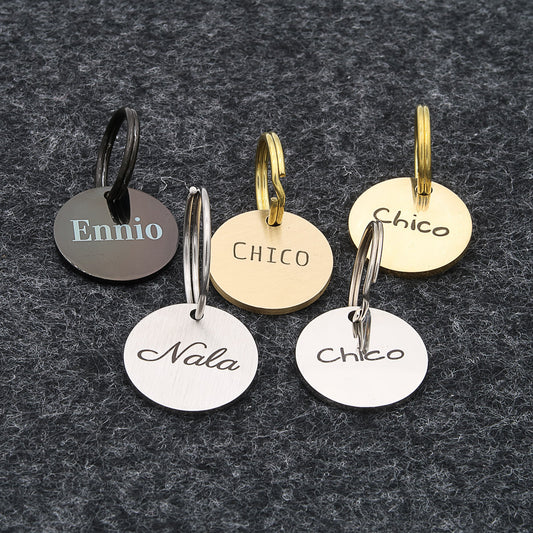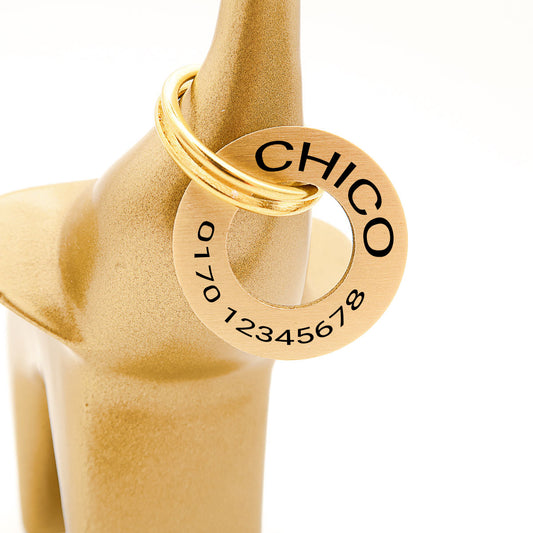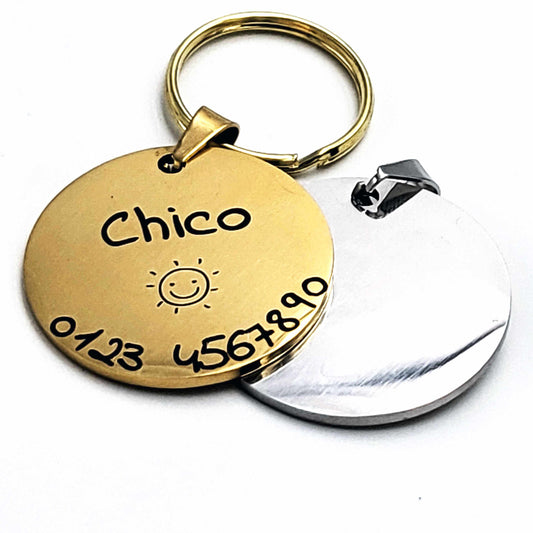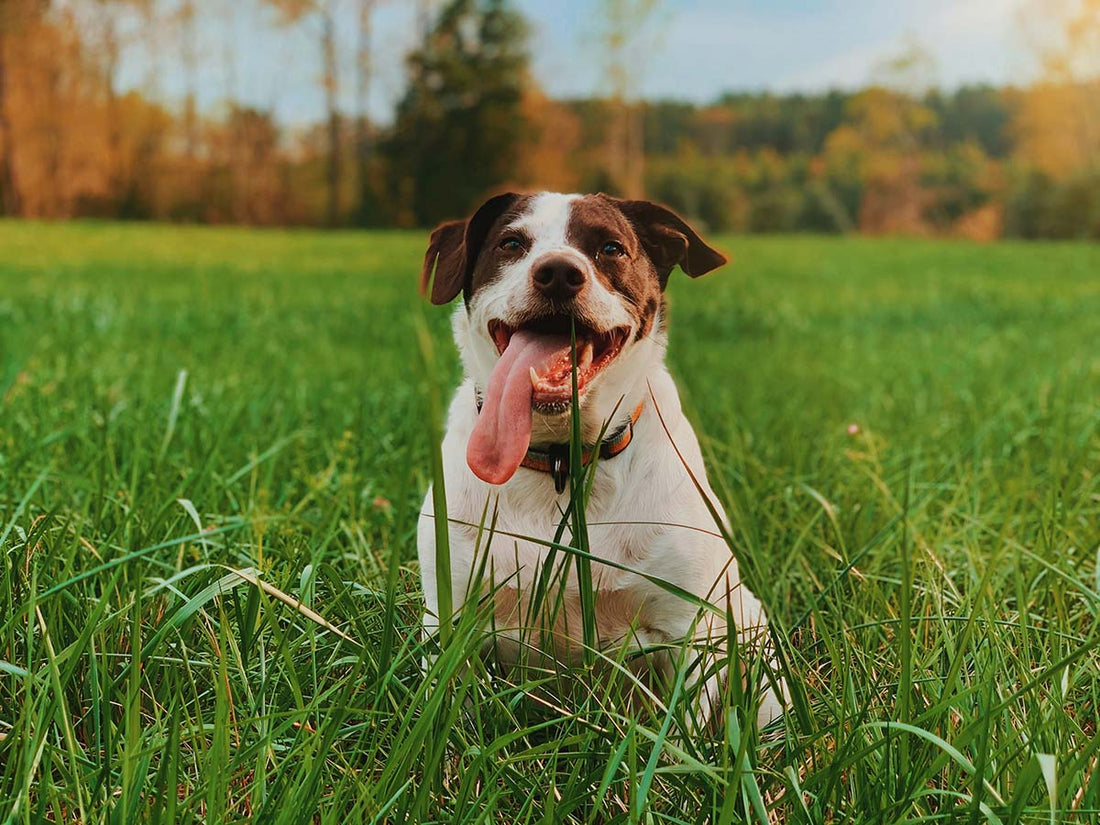
Dog eats grass: a sign of boredom or health problems?
Share
Have you ever wondered, why your dog eats grass? It may seem strange, but there are actually good reasons for it. In this article, you'll find out why dogs eat grass, what the causes may be and what tips you should follow if your dog exhibits this behavior. You can find out here whether it is just harmless behavior or whether you should consult a vet. So stay tuned and discover the reasons behind your dog's grass-eating behavior!
1. introduction: Why does my dog eat grass?
Are you worried about how your dog keeps eating grass and wondering why? Don't worry, you're not alone with this question. Grass eating in dogs can have various causes. In some cases, it may indicate that your dog is bored or underemployed. To reduce your dog's boredom, there are some tips and tricks you can try. On the other hand, grass eating could also indicate digestive problems or stomach irritation. If your dog eats grass more frequently, you should monitor this more closely and consult a vet if necessary. A balanced diet also plays an important role in your dog's health. You may also be wondering whether grass eating itself can cause health problems. It's important to know how to tell the difference between normal and problematic grass eating behavior. Overall, pay attention, but don't panic - the right way to deal with the issue of your dog eating grass.
2 Possible causes of grass eating in dogs
The phenomenon of dogs eating grass can have various causes. One reason could be boredom or under-occupation. If a dog is not sufficiently occupied, it may look for alternative activities such as eating grass. To reduce the dog's boredom, you should provide him with sufficient mental and physical exercise. Another possible cause of grass eating in dogs is digestive problems or stomach irritation. In some cases, eating grass can serve to calm the stomach or bind the feces. If your dog needs to eat grass frequently, it is advisable to consult a vet. They can rule out possible health problems and give you tips on how to deal with the behavior. It is important to note that a balanced diet is of great importance for dogs and eating grass is not a long-term solution. Therefore, you should be aware that it is important to recognize the difference between normal and problematic grass eating behavior in dogs.
3. dog eating grass as a sign of boredom and underemployment
There are several reasons why dogs may eat grass. One of them is boredom and underemployment. When a dog does not get enough mental and physical exercise, he may resort to unusual behaviors such as eating grass. This can be a sign that the dog is bored and looking for something to do. It is important to make sure that the dog gets enough exercise and that his brain is stimulated through games and activities. Don't leave him alone in the garden or in the apartment for hours on end. Give him enough attention and time for joint activities such as walks or the playing with toys. If you notice that your dog is eating more grass, you should check whether he is sufficiently occupied and offer him new challenges if necessary.
4 How can you reduce your dog's boredom?
Sometimes it can happen that your dog eats grass. But what is actually behind this? There are various reasons for this behavior. One possible cause is boredom and under-occupation. When your dog is bored, he will look for something to do and eating grass can be a way to fill his time. To reduce your dog's boredom, you should give him enough exercise and play with him. Learning new tricks or going to dog school can also help to stimulate his mind. Another reason for dogs to eat grass is digestive problems or stomach irritation. In such cases, the grass can serve as a natural cleansing mechanism to soothe the stomach. If your dog eats grass frequently and vomits or shows other signs of discomfort, you should consult a vet. They can determine the exact cause and recommend appropriate measures. Remember that a balanced diet is important for your dog. Make sure that it is fed high-quality food and cannot eat food scraps or feces. In all cases, keep a close eye on your dog's behavior to see if it is normal or problematic grazing behavior. If you are unsure, always consult a vet for advice and tips. Overall, give your dog enough attention and keep him busy to prevent boredom. Watch his grazing behavior closely and act accordingly if there are signs of health problems.
5. dog eats grass due to digestive problems or stomach irritation
If your dog is eating grass, this could be a sign of digestive problems or stomach irritation. Sometimes the grass helps to settle the stomach or remove indigestible substances from the body. It is important to note that not every dog that eats grass automatically has health problems. Occasional grass eating is normal and usually harmless. However, if your dog eats grass frequently or vomits afterwards, there could be serious digestive problems. In such cases, you should consult a vet to find out the exact cause and take appropriate action. A balanced diet and regular veterinary examinations are also important to identify and treat potential health problems at an early stage.
6 What to do if your dog needs to eat grass more often?
If your dog is eating grass frequently, it is important to determine the cause. It could be a sign of digestive problems or stomach irritation. In such cases, you should consult your vet to get an accurate diagnosis. There may also be a foreign body in the stomach that needs to be removed. There are a few tips to reduce grass eating due to boredom or under-activity: Provide your dog with sufficient mental and physical activity, such as long walks or intelligence toys. Also make sure that your dog receives a balanced diet and does not have any deficiency symptoms. If you are unsure whether your dog's grazing behavior is normal or not, observe him closely and look out for other symptoms such as vomiting or unusual behavior. In summary, be vigilant and keep your dog appropriately occupied, but don't worry too much. However, a visit to the vet can always be helpful to rule out possible health problems.
7 The importance of a balanced diet for dogs
A balanced diet plays a crucial role in the health and well-being of our beloved four-legged friends. Especially when it comes to grass eating in dogs, you should pay attention to a good diet. This is because a lack of certain nutrients is often the reason why our dog eats grass. A balanced meal can help to reduce this behavior. Make sure you choose high-quality food that contains all the important nutrients. In addition, you can also give your dog special snacks that cover his needs. However, be aware that eating grass can also cause health problems, especially if it leads to vomiting or stomach irritation. If you are concerned or your dog needs to eat grass more often, it is advisable to consult a vet. They can clarify other causes and give you tips on how best to deal with this behavior.
8. can eating grass cause health problems?
Who hasn't experienced this? You watch your dog eating grass with relish. But is this behavior really harmless or can it cause health problems? Eating grass can actually lead to various complications in dogs. A common problem is vomiting after eating grass, which can indicate an irritation of the stomach. In some cases, the dog may even swallow a foreign body and get it stuck in the digestive tract. As a dog owner, you should therefore be vigilant and keep a close eye on your four-legged friend's grass-eating behavior. If eating grass becomes a regular behavior or is accompanied by other symptoms such as loss of appetite or diarrhea, a visit to the vet is advisable. They can clarify the causes of the grass eating and give appropriate tips on how to deal with this behavior.
9 How can you tell the difference between normal and problematic grazing behavior in dogs?
Grass eating in dogs can have various causes. It is important to know how to differentiate between normal and problematic behavior. A normal dog will occasionally eat grass to settle its stomach or to absorb fiber. However, if the grass eating becomes excessive and is accompanied by vomiting or other health problems, you should take note. Pay attention to whether your dog also exhibits other unusual behaviors or whether he may be eating foreign objects. In such cases, it is advisable to consult a vet. The vet can take a closer look at the causes of the grass-eating behavior and give you tips on how to deal with it. Remember that a balanced diet is very important for your dog and that certain food ingredients can lead to digestive problems. Be attentive and make sure your dog has enough to do to prevent boredom.
10 .conclusion: Pay attention, but don't panic - the right way to deal with "dog eats grass"
If your dog eats grass, you should take a close look, but don't panic. Grass eating in dogs can have various causes. Some dogs eat grass out of boredom or under-occupation. In such cases, it is important to keep the dog sufficiently occupied and give it enough attention. On the other hand, grass eating can also indicate digestive problems or stomach irritation. If your dog needs to eat grass frequently, a visit to the vet may be advisable to rule out possible health problems. A balanced diet also plays an important role in your dog's health. It's important to know how to distinguish normal grazing behavior from problematic behavior. So keep an eye on your dog's habits and be vigilant. With the right tips and appropriate handling, you can ensure that your dog stays healthy and happy.
People also ask
Here you will find questions from Google's "People also ask" questions. Use them to add relevant information to your blog.
What does it mean when the dog eats grass?
When a dog eats grass, this can have different meanings. In most cases, it is a normal behavior and nothing to worry about. Dogs eat grass for various reasons. One of the most common reasons is self-medication. If a dog has digestive problems, eating grass can help to settle the stomach or encourage any defecation. Another reason could simply be taste. Some dogs like the taste of grass and therefore enjoy eating it. It can also be a way to combat boredom or relieve stress. It is important to note that not all types of grass are safe for dogs. Some plants may be poisonous or have been treated with pesticides, which could cause health problems. It is therefore advisable to ensure that the dog can only graze on a safe meadow. However, if a dog eats an excessive amount of grass or shows signs of discomfort such as vomiting or diarrhea, you should consult a veterinarian. This could be a sign of a serious illness or food intolerance. In summary, grass eating in dogs is not normally a cause for concern. There are several possible causes for this and as long as the dog is not showing any negative symptoms and is grazing on safe grass, there is usually no cause for concern.
What are some home remedies for grass eating in dogs?
There are various home remedies for grass eating in dogs that can help. It is important to note that these remedies do not always work for every dog and it is advisable to consult a vet to rule out possible health problems. A commonly recommended home remedy is to add a little apple cider vinegar or lemon juice to the dog's food. The sour taste can discourage the dog from eating grass. However, it is important to limit the amount of vinegar or juice added to avoid stomach irritation. Another option is to offer the dog special herbs such as parsley or mint. These can reduce the appetite for grass and at the same time promote healthy digestion. However, it is important that the herbs are given in small quantities and do not contain any poisonous plants. Some dog owners also swear by the use of certain food supplements such as psyllium or probiotic preparations. These can help to support the dog's digestive system and therefore reduce grass cravings. However, it is important to emphasize that home remedies alone are not a long-term solution to grass eating in dogs. It may be an indication of an imbalance in the gastrointestinal tract or other health problems. Therefore, a veterinary examination should always be performed to determine the cause of the behavior and treat it accordingly.
What to do if your dog has stomach acid?
Stomach acidity in dogs can have various causes and is often associated with symptoms such as vomiting, loss of appetite and abdominal pain. There are a number of measures that can be taken to treat stomach acid in dogs. Firstly, it is important to give the dog a special diet. It is advisable to feed easily digestible foods such as cooked chicken or lean beef and avoid fatty or spicy foods. It may also be helpful to divide meals into smaller portions and allow the dog regular breaks between meals. In addition, medication should only be administered under veterinary supervision. A veterinarian can decide whether acid suppressants or other medications are necessary to regulate the dog's stomach acidity. It is also advisable to minimize stress in dogs with stomach acidity. Stress can increase the production of stomach acid and worsen the symptoms. Regular exercise and adequate rest can help. Finally, the dog should be able to drink enough water to dilute the acidity in the stomach and keep the digestive system working well. If symptoms persist or if the dog's condition worsens, it is important to consult a vet. The vet can make an accurate diagnosis and recommend appropriate treatment to relieve the dog's stomach acidity.
Why is my dog eating so much all of a sudden?
There are several possible reasons why your dog suddenly eats more. One of the most common reasons is increased physical activity or increased energy requirements. For example, if your dog spends more time outside or is more active, he may need more food to balance his energy consumption. Another reason could be that your dog is in a growth phase. Puppies often have a fast metabolism and therefore need more food to grow and develop. A change in food can also cause your dog to eat more. If you have recently changed your dog's food or given your dog new treats, this may increase his appetite. It is also possible that your dog is eating more for emotional reasons. Stress or boredom can cause dogs to search for food more and change their eating behavior. If your dog suddenly eats a lot more than usual and at the same time shows other symptoms such as weight loss or excessive thirst, this could indicate a health condition. In this case, it is advisable to consult a vet to make an accurate diagnosis. Finally, it should be noted that each dog is individual and various factors can influence its eating behavior. It is important to observe changes in your dog's eating behavior and consult a vet if you have any concerns.
Image credit: Casey Calhoun on Unsplash
